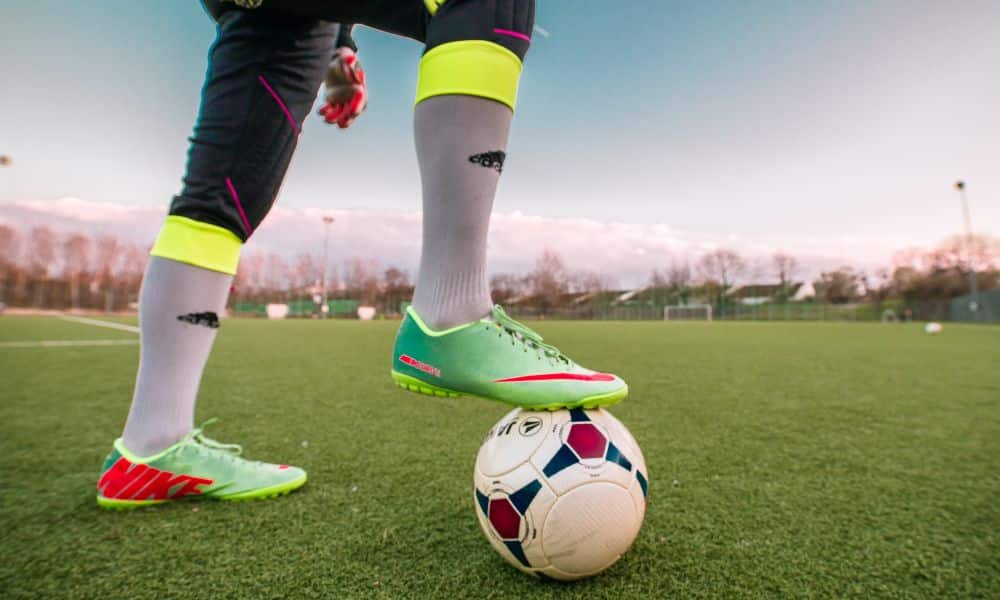Football is a glorious sport where the players are constantly moving. It’s exciting to watch and can be pretty intense. But, if you’re like many parents, you might wonder how you can teach your kids to play football if they are interested in playing the game. We will discuss some tips to help you understand football’s role in developing young athletes’ muscle memory and physical strength.
As parents of an enthusiastic young football player, you probably wonder what you can do to make this game safer for your son or daughter. This article will provide some tips on how to help get the most out of football without sacrificing safety.
“We all know the saying, no pain, no gain.” Well, this is especially true for football. Football is a demanding sport that requires toughness and endurance. Not only does your child need to be physically prepared for each game, but there are some things you can do as their parent during practice too!” Football is a contact sport, but that doesn’t mean your child has to be in harm’s way. There are many ways you can help your child enjoy football without risking injury.
If you’re wondering how to help your child get the most from this contact sport, here’s how!
Before heading out, they wear safety gear, like an appropriate helmet or mouth guard. In addition, please encourage them by yelling words of encouragement during games and practice sessions.
Here are four things you can do to teach your kids how to get the most from playing football:
1. Fair play
It’s been said that football builds character. The game teaches youngsters about life. While playing the contact sport, kids will learn about winning, losing, competition, consequences, and challenges. You can prepare your child to play football by building their self-esteem and emotional health by playing games and hobbies; teaching them that rules and other people matter will help them play the game smarter and safer.
Many injuries happen on the football field because players do not follow the rules. While it may not be cheating or cause the referee to throw a flag, trying to win by any means necessary can cause injuries. Therefore, it’s essential to help your child enjoy playing sports and focus on the game, not winning.
Doing this will help your child play the game and not get played by the game. When parents use the game to build a child’s emotional health, the youngster becomes an accomplished adult. Take the long view when teaching your child about football. It is more important to win in life than to win a game. Finally, teach your child the rule we learned as kids; safety comes first!
2. Mental Concentration
The critical lesson that Tom Brady, Jerry Rice, and Emmitt Smith taught us was that 80% of football is played above the shoulders. To stay on the field, kids must listen to coaches and referees and learn how to play the game and run plays. Then, kids can focus on having fun and playing better by paying attention and learning quickly.
As a parent, you can teach your kids how to play football best by helping them develop mental concentration. Introducing them to card and board games will help them learn the value of rules, deciding, and staying focused.
After a card or board game, always discuss the details of the game with your child. Give them tips on playing better and listen to them to see how they learn from their mistakes. It is important to remember that coaches are human, and no coach wants to coach a hard-headed kid. Also, mentally concentrating, children learn faster and make fewer mistakes on the field. By using mental concentration to learn the rules and stay focused during the game, your child will have fun, perform better and stay safer.
3. Physical Education
Getting your child ready emotionally and mentally to play the game of football is extremely important. Still, they will have to move past being prepared and play the game at some point. A football player uses four moves to excel in football: run, tackle, catch and block. You can improve your child’s physical skills by getting them to perform exercises that use the abilities they need to improve.
Basketball, soccer, tag, and racing are significant activities you can teach your child how to play football. Basketball involves running, jumping, catching, and blocking (setting a pick). It is also a fun way for kids can work on physical skills without even realizing they are exercising. The tag performs the same way. Kids have to chase, reach, change directions and stop and start. Besides using exercises that directly improve your child’s skills on the football field, you can also teach them the importance of stretching, bodyweight exercises, speed exercises, and resistance training.
Here is a list of some exercises kids can benefit from:
- pushups
- jump ropes
- walking lunges
- pullups
- shuttle run
- bear crawl
- crab walk
- Spiderman
- scissor kicks
- swimming
4. TeamWork
We all know the saying, “teamwork makes the dream work.” Being a part of a team is one of the most important lessons you can teach your child, not just for football but in life. No man is an island. Teams win championships while players get played. The cliches are endless. The best way to help your child understand the importance of teamwork is to make the game about the game, not the child or you.
Modeling the correct behaviors for children helps kids to see what is essential. Let them see you talking with other parents and coaches. Also, make it a point to congratulate and support all the kids, not just yours. By showing your kid how to help others, you will provide them with one of the best skills they can possess and use throughout their lives.
The last word on teaching your kids how to play football
As a parent, you are the first and most important teacher your kid will depend on. You can make your job easier and help your kid grow up successfully by using sports, school, and events to support what you teach at home. Taking the big-picture approach and helping your kid win some battles along the way to winning the war can provide your child with a bright and healthy future.
Please focus on the journey and not the destination while educating your child about their physical, emotional, and mental health. For example, you can use football to teach your child about health and fitness when learning; not winning becomes the goal. Finally, teaching your child how to take care of their health by doing the right things guarantees they live a long and good life.




